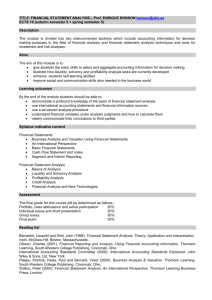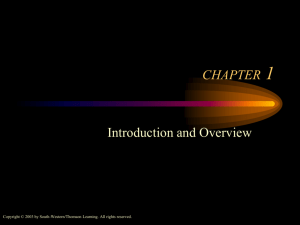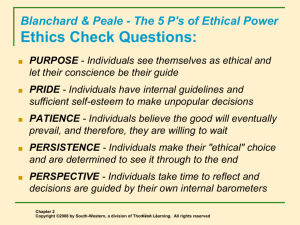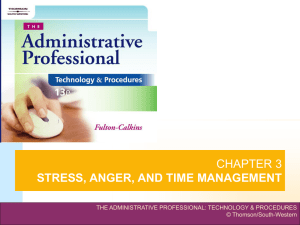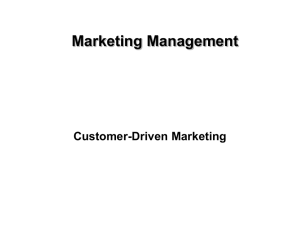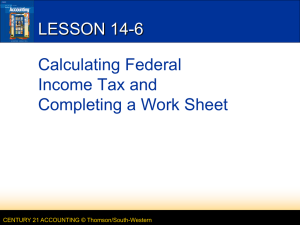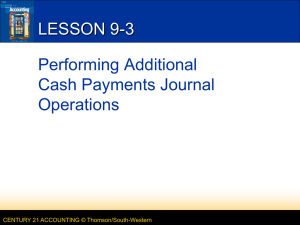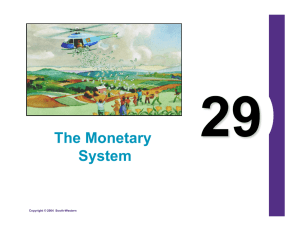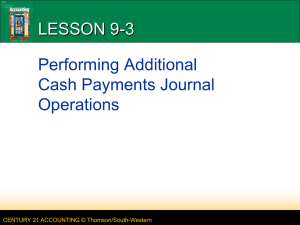Lesson 3-1
advertisement
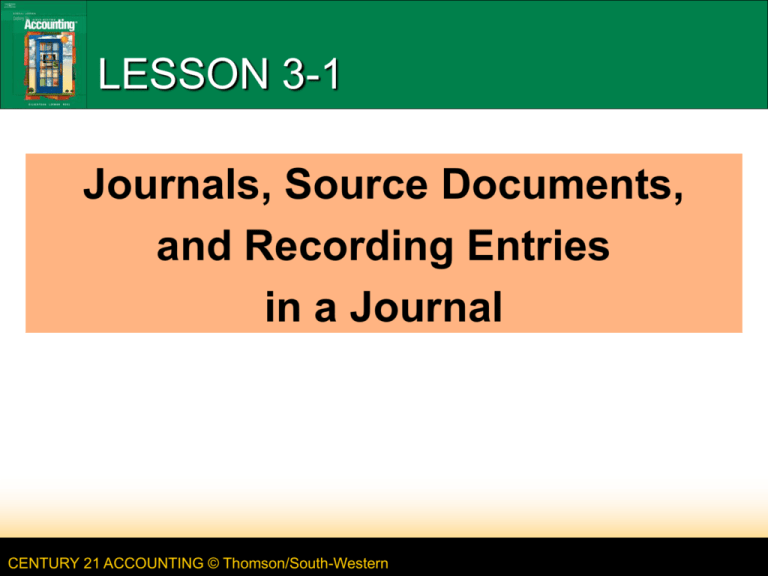
LESSON 3-1 Journals, Source Documents, and Recording Entries in a Journal CENTURY 21 ACCOUNTING © Thomson/South-Western 2 What’s a Journal? So far we’ve been able to break down parts of transactions into debits and credits using a T-account Now we will be using a specialized form that’s used to record debits and credits in chronological order CENTURY 21 ACCOUNTING © Thomson/South-Western LESSON 3-1 3 A GENERAL JOURNAL page 57 A journal is a form that’s used to record transactions in chronological order on a daily basis. CENTURY 21 ACCOUNTING © Thomson/South-Western LESSON 3-1 4 What is a Source Document? Every transaction that is journalized MUST have proof that it exists to verify for accuracy. A source document is a form which information is obtained from to journalize a transaction A transaction cannot be journalized without a source document to prove it. CENTURY 21 ACCOUNTING © Thomson/South-Western LESSON 3-1 5 Types of Source Documents and Abbreviations CHECKS C SALES INVOICES S RECEIPTS R CALCULATOR TAPES T MEMORANDUMS M CENTURY 21 ACCOUNTING © Thomson/South-Western LESSON 3-1 6 CHECKS - C page 58 A check is used for making cash payments and orders a bank to pay (debit) cash from a bank account. Each check is prenumbered to account for all checks. CENTURY 21 ACCOUNTING © Thomson/South-Western LESSON 3-1 7 SALES INVOICES - S page 58 A sales invoice is used to record a sale on account. Each sales invoice is prenumbered to account for all invoices. CENTURY 21 ACCOUNTING © Thomson/South-Western LESSON 3-1 8 Receipt - R A receipt is written acknowledgment for cash received regarding transactions other than sales. CENTURY 21 ACCOUNTING © Thomson/South-Western LESSON 3-1 9 Memo - M A memo is a form in which a brief message is written on describing a transaction when no other source document can be used. CENTURY 21 ACCOUNTING © Thomson/South-Western LESSON 3-1 10 Calculator Tape - T A calculator tape is used to total the amount of cash received from sales for each day. Each tape is numbered with each day’s date. T12 in the example above refers to August 12. CENTURY 21 ACCOUNTING © Thomson/South-Western LESSON 3-1 11 Four Steps to Journalizing a Transaction page 60 1. Write the date in the Date column (list chronologically). 2. Write the title of the account debited. Write the debit amount. 3. Write the title of the account credited. Write the credit amount. 4. Write the source document number in the Doc. No. column. CENTURY 21 ACCOUNTING © Thomson/South-Western LESSON 3-1 12 RECEIVED CASH FROM OWNER AS AN INVESTMENT page 60 August 1. Received cash from owner as an investment, $5,000.00. Receipt No. 1. 1. Write the date in the Date column. 2. Write the title of the account debited. Write the debit amount. 3. Write the title of the account credited. Write the credit amount. 4. Write the source document number in the Doc. No. column. CENTURY 21 ACCOUNTING © Thomson/South-Western LESSON 3-1 13 PAID CASH FOR SUPPLIES page 61 August 3. Paid cash for supplies, $275.00. Check No. 1. 1. Write the date in the Date column. 2. Write the title of the account debited. Write the debit amount. 3. Write the title of the account credited. Write the credit amount. 4. Write the source document number in the Doc. No. column. CENTURY 21 ACCOUNTING © Thomson/South-Western LESSON 3-1 14 3-1 Work Together CENTURY 21 ACCOUNTING © Thomson/South-Western LESSON 3-1
